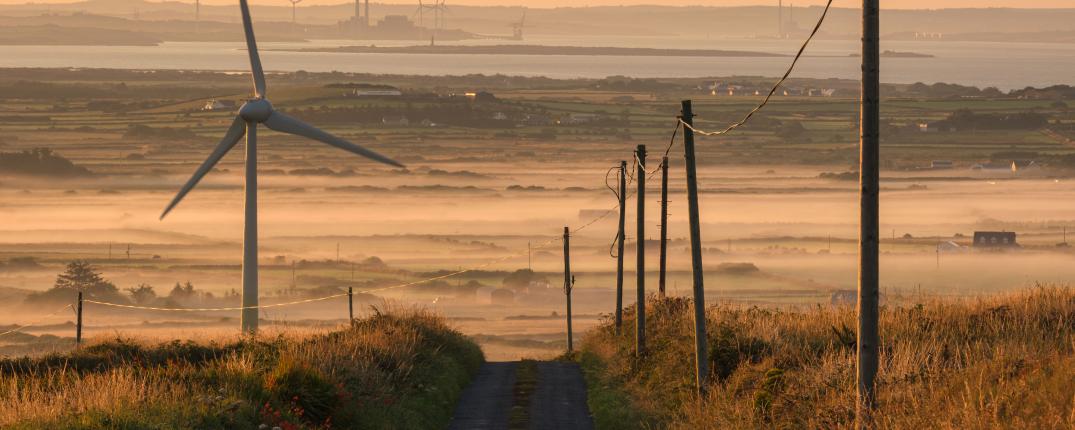
The driver
As countries worldwide strive to decarbonize their primary energy usage, the demand for electricity is growing rapidly. The International Energy Agency (IEA) predicts that global electricity demand will increase by 2,500 terawatt hours (TWh) from 2023 to 2025, marking a 9% growth to reach an annual demand of 29,281 TWh. To meet this demand without increasing carbon dioxide emissions, government policy is focusing on non-fossil-fuel energy sources. In 2019, the International Energy Agency estimated the total world energy consumption was approximately 161,111 TWh, indicating the scale of the transition needed.

2019 share of world total final consumption by source (418EJ = 161,111 TWh). Source: IEA, Paris, 2021
The need for local acceptability and buy-in
The above driver being firmly in place means there will be an increasing pressure for the roll-out of many more renewable energy projects. However, we find ourselves in a situation where already many developments - e.g. wind farms - face opposition from local communities leading to planning permissions being denied.
This resistance often stems from the way projects are implemented. In some cases, projects are being developed in a way that is causing significant damage to community social cohesion for a variety of reasons. This is undermining community trust that the renewable-energy transition is being done with everyone’s best interest at heart which leads to the aforementioned opposition.
The importance of local support
The poor-practice that results in this erosion of trust tends to happen despite some people's best intentions - over-zealous renewable energy developers underestimating the crucial importance of first earning local support, which is essential for the successful integration of projects within communities.
As previous projects have taken many of the wide-open-space sites, new projects are encroaching more and more into communities and so will need to be designed in a way that will earn broad local backing if they are to be successful.
Ensuring our project development approach is fit for purpose
Poor projects - deemed irresponsible by the host communities - need to become a thing of the past. They cause unnecessary local stress and undermine trust in the industry and the government. To guard against this, project proponents need to integrate earning local support into their business model and project design at a level equal to financial, technical, and legal considerations. It is in everyone's interest that only projects that are good for both investors and for local sustainable development progress. This can seem overwhelming for project development teams, and indeed for potential host communities, as it requires a new skill set and a change in mentality from the status quo. The good news is that more and more host communities, and indeed developers, are asking how they can update and improve this status quo in order to gain a stronger social licence to operate for their projects.
Support by ELSA
To successfully make this transition, the Earning Local Support Academy (ELSA) has compiled national and worldwide research, experience and best practice to helps both developers and host communities integrate the required new skill set and mentality into the current best-practice project development.
By integrating joined up engineering, community development, assessment, business and communication expertise at the very early stages of project design, ELSA mobilises the ability to enable projects wanted by investors and host communities alike. This avoids the waste and stress of poor or non-optimal projects. By fostering a "win-win or no deal" approach, as advocated by Stephen Covey in "The 7 Habits of Highly Effective People," ELSA supports the creation of projects that are both economically viable and socially beneficial.
About ELSA
The creation of ELSA is led by AstonECO and peer-reviewed by Galway University, with substantial financial support from the Sustainable Energy Authority of Ireland under the SEAI Research, Development & Demonstration (RD&D) Funding Programme 2022 # 22/RDD/874. By co-designing projects that meet all relevant needs, ELSA helps build a sustainable and socially inclusive future in renewable energy.

